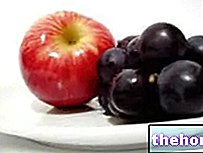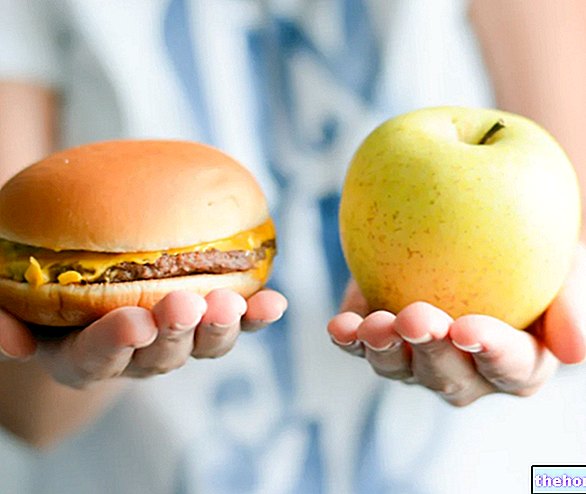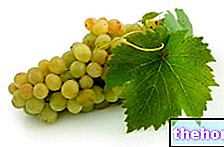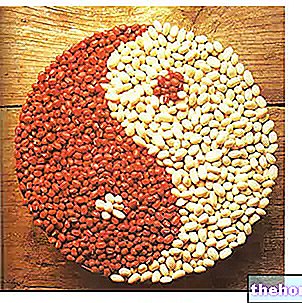Premise
The following indications are for informational purposes EXCLUSIVELY and are not intended to replace the opinion of professionals such as a doctor, nutritionist or dietician, whose intervention is necessary for the prescription and composition of PERSONALIZED food therapies.

Mayo diet
The Mayo ketogenic diet (which has nothing to do with the well-known and contemporary "Mayo clinic diet") is a dietary strategy invented at the "beginning of the last century and revived with some modifications in the" 80s.
The Mayo diet lasts about 14 days, of which 12 for weight loss and 2 for rest or recovery; it is a fairly extreme method and absolutely NOT RECOMMENDED, which aims to significantly reduce weight in a useful time of two weeks.
The Mayo diet is NOT weighted but uses daily caloric intake well below 1000kcal and divided into just 3 daily meals: breakfast, lunch and dinner. The cardinal principles of food choice according to the Mayo diet are as follows:
- Abolition of ALL condiments, except those for the CONTOUR
- Abolition of milk and dairy products, except for 1 yogurt within 14 days
- Abolition of cereals and derivatives, except 1 slice of bread per day
- Abolition of legumes
- Abolition of potatoes
- Abolition of fruit, except GRAPEFRUIT
- Abolition of added sugars and sweet foods
- Consumption of vegetables limited exclusively to: celery, tomato, cucumber, salad and spinach
- Consumption of 6-36 eggs per week, with the possibility of substituting them for meat or fish cooked on the grill or steamed
- Free consumption of beverages such as coffee and tea.
The main meals of the Mayo diet (28 in total) "should" be managed as follows:
- 10-12 egg meals
- 10-12 meat meals
- 3 fish-based meals
- 2 fruit-based meals
- 1 yogurt-based meal
Downsides of the Mayo Diet
I reiterate that the Mayo diet is NOT balanced, therefore it represents a highly NOT ADVISABLE diet plan; obviously, if the primary requirement of weight loss therapy were the weight reduction effect, the Mayo diet would certainly boast a very good reputation, but it is not. In fact, the first goal of the "diet", whatever it is, is that of preserve the state of health of those who carry it out and, of course, this is not the case!
The Mayo diet is EXTREME; as such, it can only cause a considerable level of stress for the organism. First of all, the Mayo diet can NOT be applied to sports subjects or even simply "active", since the caloric and carbohydrate intake are absolutely insufficient to support any type or level of physical and motor activity. Secondly, the balance of macro and micronutrients is almost non-existent and the fact that the authors advise against extending it beyond 14 days is to be interpreted as a warning. The intake of animal fats (attributable to the quantity of eggs and meat) is a to say the least worrying; in 14 days a person who follows the Mayo diet could take almost 10,000mg of cholesterol (the lipid which, if present in excess in the blood, is potentially responsible for atherogenic phenomena). In this regard, considering that a good portion of the obese population has AT LEAST one form of metabolic alteration (related to the reduction of life expectancy), I would dare to say that the Mayo diet is absolutely not the most suitable solution for weight loss. no less important, the potential depletion of muscle tissue; this happens in the body's attempt to meet the daily energy needs, therefore following the massive demolition of tissue proteins for hyper-activation of hepatic neoglucogenesis, in turn aimed at glycemic maintenance.
Useful food supplements for the Mayo diet
The supplements useful for the Mayo diet are, more or less, all those on the market! This statement is by no means excessive or provocative, but it faithfully respects the nutritional needs of anyone who dares to follow it.
This means that the Mayo diet can NOT be considered a harmless or applicable food strategy; making use of many supplements COULD reduce the physical discomfort they imbalances related to it, but certainly with it would constitute a respectable choice.
Food supplements MUST have the function of completing the nutritional supply of a diet compromised by valid or unavoidable reasons, and not that of limiting the damage caused by obsolete and potentially harmful nutritional strategies.
Example 7 days of the Mayo diet
ATTENTION! In the following example, it will be my concern to modify the frequency of consumption of foods of animal origin by drastically reducing eggs and favoring the consumption of fish, so as to make the dietary scheme less unbalanced as possible (a feat, alas, in any case impossible!)
Mayo Diet Example - Day 1
Breakfast
Rye bread
30g, 77.4kcal
Lunch
Grilled turkey
Turkey breast, skinless
300g, 333kcal
Cucumbers
300g, 45kcal
Dinner
Baked sea bream
Fillet of sea bream
300g, 270kcal
Lettuce
100g, 18kcal
Mayo Diet Example - Day 2
Breakfast
Rye bread
30g, 77.4kcal
Lunch
Grilled veal
Veal sirloin
300g, 330kcal
Tomatoes
300g, 48kcal
Dinner
Fruit yogurt
Fruit yogurt
240g, 152.6kcal
Spinach
300g, 69kcal
Mayo Diet Example - Day 3
Breakfast
Rye bread
30g, 77.4kcal
Lunch
Grilled horse
Horse Steak
300g, 399kcal
Lettuce
100g, 18kcal
Dinner
Grapefruit
900g, 234kcal
Celery
300g, 48kcal
Mayo Diet Example - Day 4
Breakfast
Rye bread
30g, 77.4kcal
Lunch
Grilled chicken
Chicken breast, skinless
300g, 330kcal
Cucumbers
300g, 45kcal
Dinner
Baked sea bass
Sea bass fillet
300g, 291kcal
Radish
100g, 23kcal
Mayo Diet Example - Day 5
Breakfast
Rye bread
30g, 77.4kcal
Lunch
Grilled beef
Fillet of beef
300g, 444kcal
Tomatoes
300g, 48kcal
Dinner
Egg
Whole eggs
150g, 214.5kcal
Spinach
300g, 69kcal
Mayo Diet Example - Day 6
Breakfast
Rye bread
30g, 77.4kcal
Lunch
Grilled horse
Horse Steak
300g, 399kcal
Lettuce
100g, 18kcal
Dinner
Grilled pork chop
Lean pork chop
300g, 381kcal
Celery
300g, 48kcal
Mayo Diet Example - Day 7 - Rest
Breakfast
Partially skimmed cow's milk
300ml, 150kcal
Finger biscuits
50g, 182.6kcal
Snack
Apple, with peel 200g
104kcal
Lunch
Spaghetti with tomato sauce
Semolina pasta
90g, 320.4kcal
Tomato sauce
100g, 24kcal
Parmesan
10g, 39.2 kcal
Endive
100g, 17kcal
Extra virgin olive oil
10g, 135kcal
Whole grain bread
90g, 218.7kcal
Snack
Pear
200g, 116kcal
Dinner
Ricotta
Cow ricotta, from partially skimmed milk
125g, 172.5kcal
Potatoes
300g, 231kcal
Extra virgin olive oil
5g, 45kcal
Whole grain bread
90g, 218.7kcal
Red wine 120ml
102kcal




























